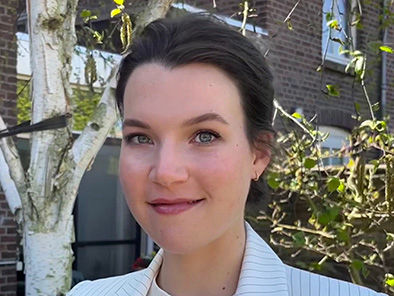

Abstracts Division 1
14. Weight changes in children with and without overweight and obesity during the COVID-19 pandemic


*Lisanne Arayess1,2,3, *Judith Lubrecht1,2,3, Dorien Reijnders2,3, Marijn
Hesselink3, Gabrielle ten Velde2,3, Christiana van Loo3,
Arieke Janse4, Ines von Rosenstiel5, Edgar van Mil6,
Marjoke Verweij7, Anita Vreugdenhil1,2,3.
1 Centre for Overweight Adolescent and Children’s Healthcare (COACH), Maastricht University Medical Centre+, Maastricht, the Netherlands
2 Centre School of Nutrition and Translational Research (NUTRIM), Maastricht University Medical Centre+, Maastricht, The Netherlands
3 Centre Department of Paediatrics, Maastricht University Medical Centre+, Maastricht, The Netherlands
4 Centre Department of Paediatrics, Gelderse Vallei Hospital, Ede, The Netherlands
5 Centre Department of Paediatrics, Rijnstate Hospital, Arnhem, The Netherlands
6 Centre Department of Paediatrics, Jeroen Bosch Hospital, ‘s-Hertogenbosch, The Netherlands
7 Centre Department of Paediatrics, VieCuri Hospital, Venlo, The Netherlands
*These authors contributed equally to this work
Background
School closures due to the COVID-19 pandemic affect children’s daily structure,
mealtimes, physical activity and sleeping habits, possibly exacerbating weight
gain, particularly in vulnerable children with overweight/obesity.
Objective
To determine perceived and objectively measured bodyweight change in Dutch children during
the COVID-19 pandemic and the effect of a prior lifestyle intervention.
Methods
150 children of the Children, Obesity and Lifestyle during COVID-19 (COLC) study (cohort A)
reported perceptions of weight change. Anthropometric data of 66 children with
overweight/obesity was collected at the expertise Centre for Overweight
Adolescent and Children’s Healthcare (COACH; cohort B).
Results
In cohort A, 43% of children with overweight/obesity perceived weight gain during the
pandemic, compared to 15% of lean children. In cohort B, BMI z-score increased
by 0.065 within five months. Being enrolled in a lifestyle intervention for
more than one year and having parents with Dutch nationality was associated
with less weight gain, specifically in children with obesity.
Conclusion
Children with overweight/obesity are especially at risk for accelerated weight gain during
the COVID-19 pandemic. Prior long-term enrolment in a lifestyle intervention
lowered risk of weight gain, which emphasizes the importance of strong support
for vulnerable populations during health crises and pleads for wide
implementation of lifestyle interventions for children.

NUTRIM | School of Nutrition and Translational Research in Metabolism
NUTRIM aims to contribute to health maintenance and personalised medicine by unraveling lifestyle and disease-induced derangements in metabolism and by developing targeted nutritional, exercise and drug interventions. This is facilitated by a state of the art research infrastructure and close interaction between scientists, clinicians, master and PhD students.
www.maastrichtuniversity.nl/nutrim